
Japan is renowned worldwide as a nation steeped in a culture that combines both tradition and modernity. Thousands of years as an isolated island country allowed Japan to undergo various cultural evolutions in solitude, creating a truly unique traditional culture. As connections with other countries grew, Japanese tradition was influenced and altered to create the unique culture of modern Japan, evident in its combination of traditional concepts with the latest technology and art that astound the rest of the world.
Begin your journey of endless discovery into the culture of Japan with these gems below.
Japan is one of the largest and most developed economies in the world. It has a well-educated, industrious workforce and its large, affluent population makes it one of the world’s biggest consumer markets. Japan’s economy was the world’s second largest (behind the US) from 1968 until 2010, when it was overtaken by China. Its gross domestic product (GDP) in 2016 was estimated to be USD 4.7 trillion, and its population of 126.9 million enjoys a high standard of living, with per capita GDP of just below USD 40,000 in 2015.
With its phenomenal economic revival from the ashes of World War II, Japan was one of the first Asian countries to climb the value chain from cheap textiles to advanced manufacturing and services – which now account for the majority of Japan’s GDP and employment. Primary industries, including agriculture, account for just 1 per cent of GDP.

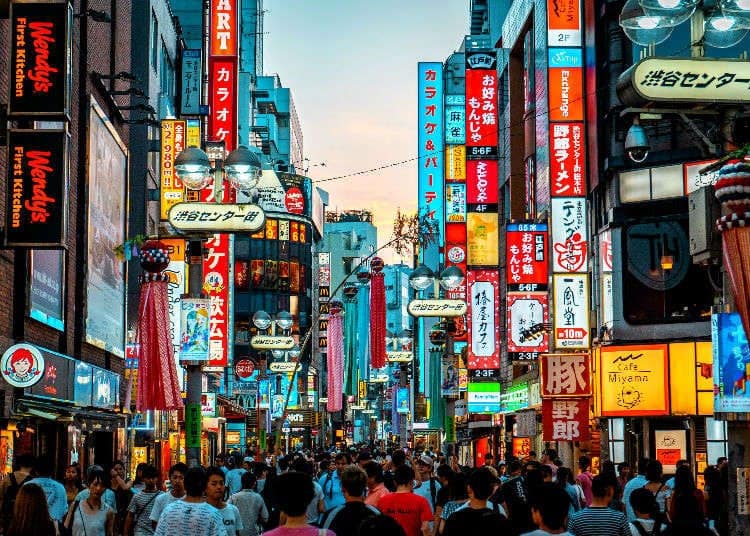
During 2023 Japan population is projected to decrease by -148,939 people and reach 126,070,518 in the beginning of 2024. The number of deaths will exceed the number of live births by 218,360, so the natural increase is expected to be negative. If external migration will remain on the previous year level, the population will be increased by 69,421 due to the migration reasons. It means that the number of people who move into Japan (to which they are not native) in order to settle there as permanent residents (immigrants) will prevail over the number of people who leave the country to settle permanently in another country (emigrants).
Japan consists of several thousands of islands, of which Honshu, Hokkaido, Kyushu and Shikoku are the four largest. Japan’s closest neighbors are Korea, Russia and China. The Sea of Japan separates the Asian continent from the Japanese archipelago. Japan’s area is comparable to that of Germany or California. Japan’s northernmost islands are located on a similar geographical latitude as Milan or Portland, while her southernmost islands are on a similar latitude as the Bahamas. More than 50% of the country is mountainous and covered by forests. Japan is politically structured into 8 regions and 47 prefectures.
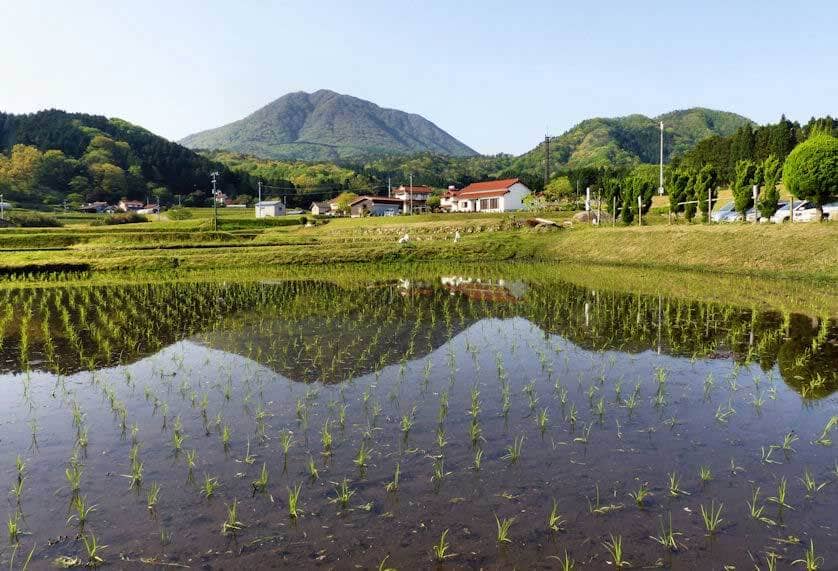
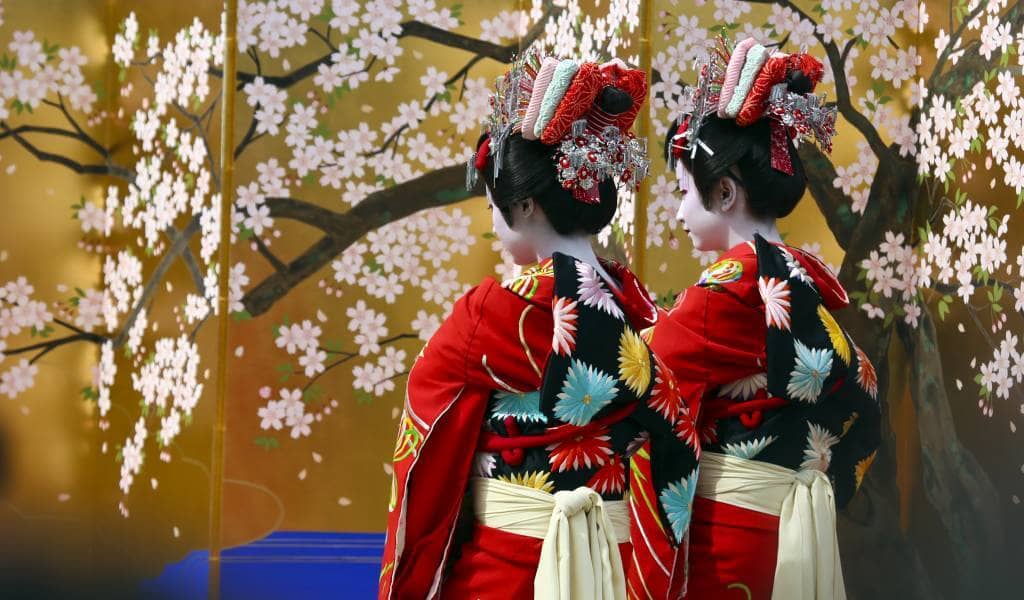
One of the most exciting things about studying abroad in Japan is the chance to experience Japanese culture firsthand. Thanks to the growing popularity of Japanese entertainment — including Pokémon, Studio Ghibli films, and various anime series — many U.S. students are interested in Japanese culture more broadly.
However, watching television shows and playing games are no substitute for experiencing Japan in person. Studying in Japan provides students with an opportunity to immerse themselves in Japanese culture.
Japan’s education system is hard to beat — the country ranks first on the Organisation for Economic Cooperation and Development’s Better Life Index for education. Japanese universities are also some of the best in the world. Institutions like the University of Tokyo and Hokkaido University offer top-notch academics and diverse extracurricular opportunities.
Students studying abroad in Japan usually receive top-level instruction during their time in the country. Most universities offer English-language classes. Studying abroad in Japan means there’s no need to choose between enriching cultural experiences and academic quality — you can have both.

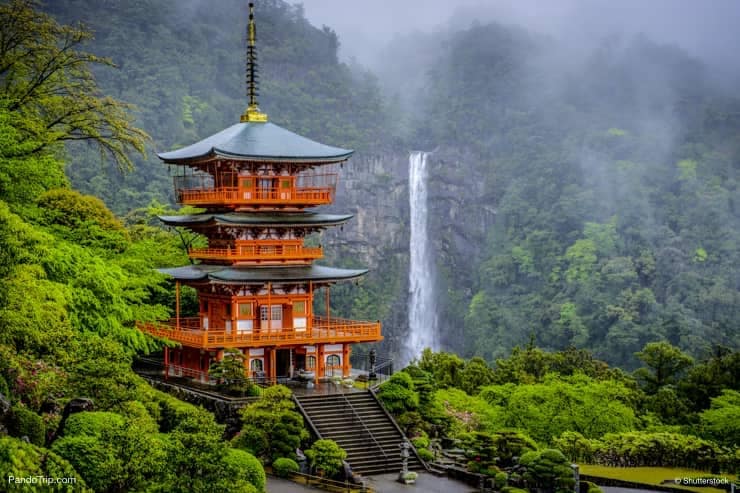
Roughly the size of California, Japan is a country of tremendous natural beauty and diversity. As an island nation, Japan has an extensive coastline surrounded by smaller islands, which students can visit on day trips or weekend getaways.
If you’re looking for a location further inland, Japan is also home to extensive mountain ranges, including Mount Fuji. The city of Nagano, which hosted the 1998 Winter Olympics, houses multiple colleges and universities. And in the mountains, visitors can find famous natural hot springs enjoyed by humans and snow monkeys alike.
The cost of college is a key concern for many students in the United States. But you might be able to get a bargain if you choose to study abroad in Japan.
According to the Japan Student Services Organization, tuition fees for international students in Japan are typically under $10,000 per year, which is significantly lower than those for most U.S. institutions.
However, students hoping to study abroad in Japan will have to budget for their visas, flights, and other expenses. Learners should also consider how location impacts cost. The cost of living if you’re studying in Tokyo or another big city is likely to be higher than if you’re studying at a more remote school.

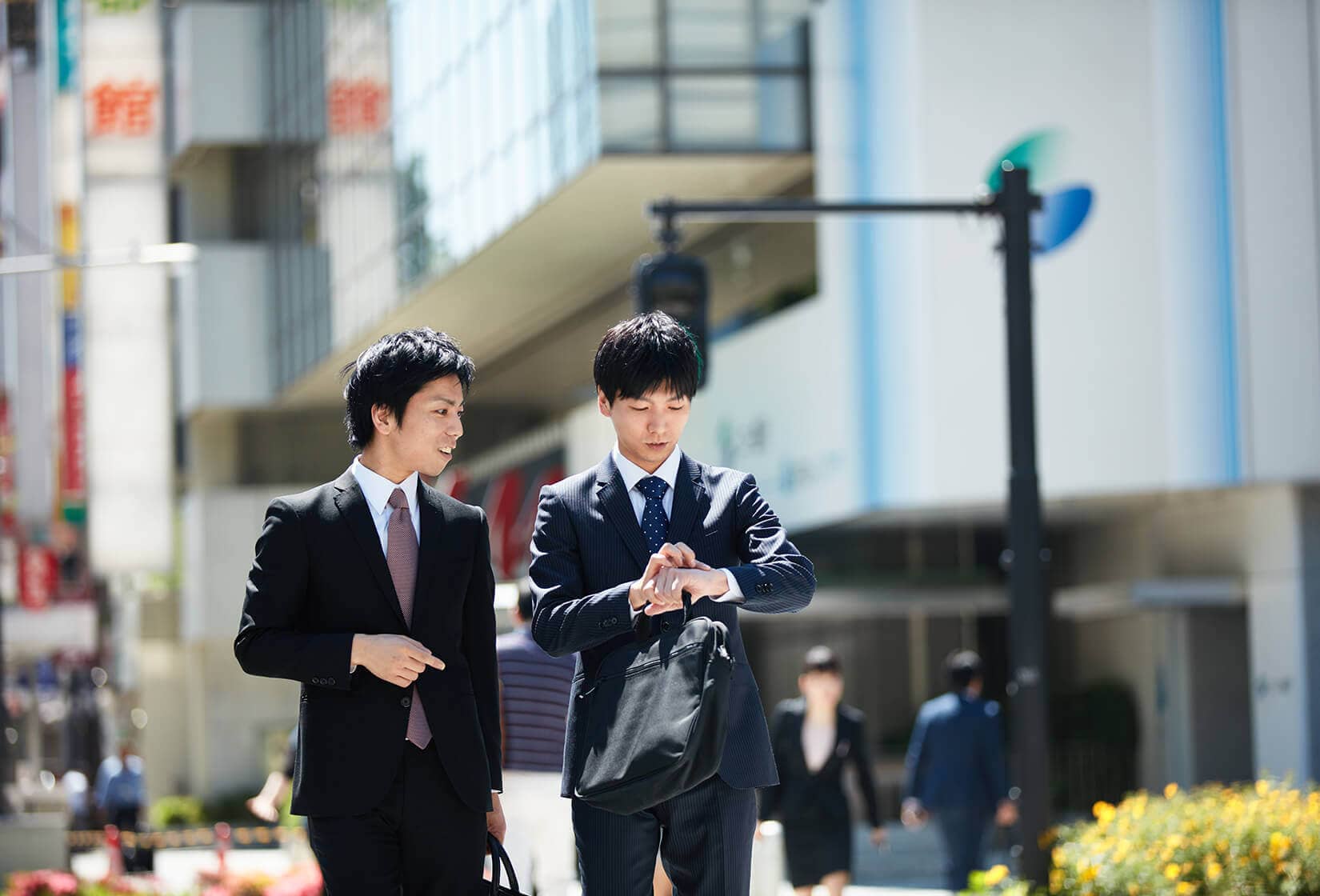
Studying in Japan is a valuable and unique cultural experience. It can also be a stepping stone to great professional opportunities. Japan has one of the largest developed economies on Earth. Japanese companies like Sony, Toyota, and Nintendo have worldwide spheres of influence and offices in the United States and Europe.
Studying in Japan may allow you to make invaluable connections and develop in-demand language skills. Students in the country can access many internship, job, and career opportunities, both in Japan and worldwide.
Safety comes first, especially in an unfamiliar country. Japan is often ranked as one of the safest places to study abroad. The country boasts low crime rates and some of the safest urban centers in the world.
If you’re looking to get out of the city, you’re in luck: Travel is easy in Japan. With a large and highly efficient high-speed rail system complete with student discounts, there’s no need to rent a car or purchase flights. Students can even ride the famous shinkansen, or bullet train, one of the fastest trains in the world.

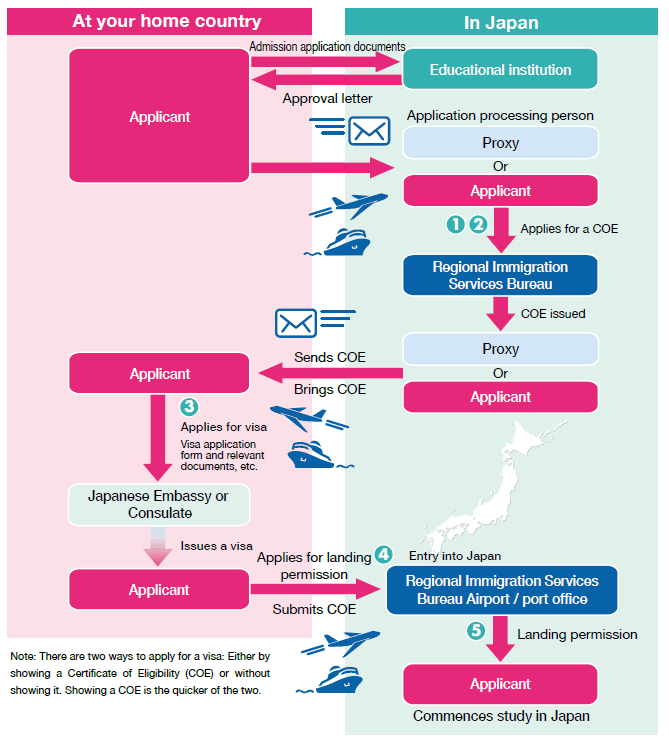
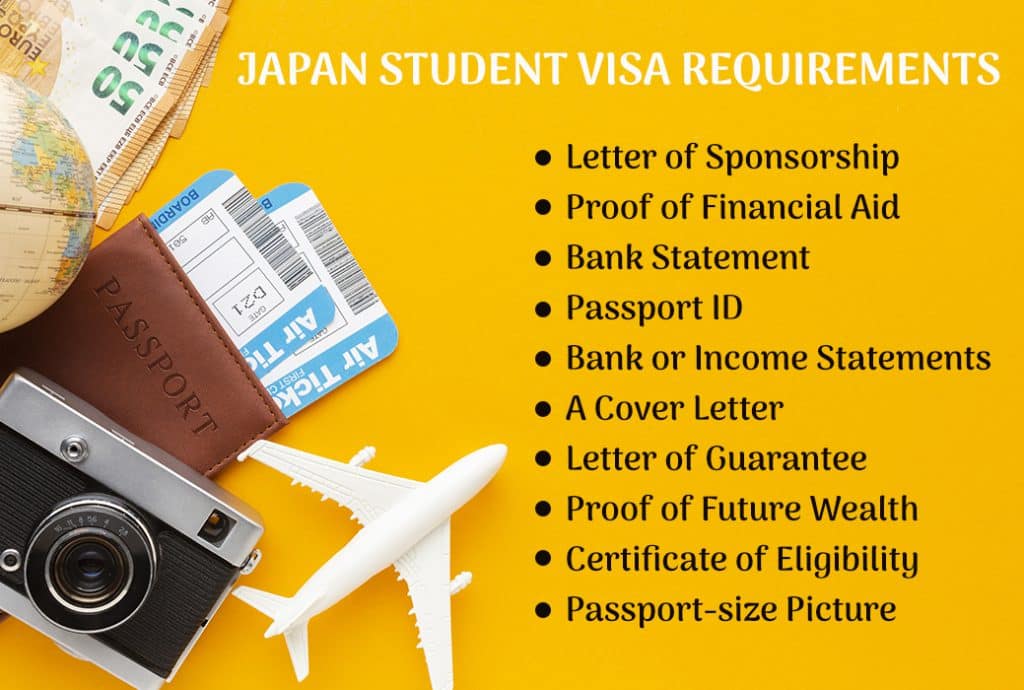

Applying for the work permit
Initially, a student visa does not allow one to work in Japan. It is necessary to apply for “permission to engage in activity other than that permitted in status of residence previously granted,” or a work permit, for short. The application is rather easy and there are two ways to do this:
We highly recommend filling out the form before you arrive in Japan if you intend to work, as you’ll be able to work right away. If you do it once you’re in the country, it can up to a month before you are issued your work permit.
Once your permission is approved, they will stamp the bottom space of the back of your zairyu, or Japanese residence, card with a black stamp. They will also put a sticker in your passport.
That’s it — you’re all set to work!
As a student you can apply for almost any kind of job posting but you are not allowed to partake in those that are related to adult entertainment. These types of jobs would include the following:
You get the picture. Even if you are not involved in any kind of inappropriate acts, just working in the same venue is illegal. This includes working as a janitor, kitchen staff or server! If you have any questions at all about your job, contact your school and they’ll let you know if it is allowed or not.

Criminal activity is heavily punished in Japan and being ignorant of what’s against the law is no excuse. Organized crime groups often target foreign students to carry out their schemes. They will give you money for simple tasks, such as:
Don’t fall for such things! If something sounds too good to be true, it probably is — and consult your school!

1. All document should be provided 1 original and 1 photo copy. Photo copy must be in A4 size paper.
2. Further additional documents may be required.
3. Application with incomplete submission of required documents will not be accepted.
4. Please refer to MOFA (Visa and Entering Japan) for further details.
5. Consult the Visa Section in case of a humanity emergency travel.
You will need the following documents for your Japanese Student Visa application:
Choosing to study abroad in Tokyo will ring up a massive bill, but the countryside won’t. The majority of Japan is covered in scenic mountains and gorgeous vistas making most cities equally attractive for prospective students. Consider studying in Hokkaido, Nagano, or Gifu as more budget-friendly alternatives to a major city. Food and rent are significantly cheaper outside of Japan’s sprawling urban centers. Plus, you’ll be forced to improve your language skills!







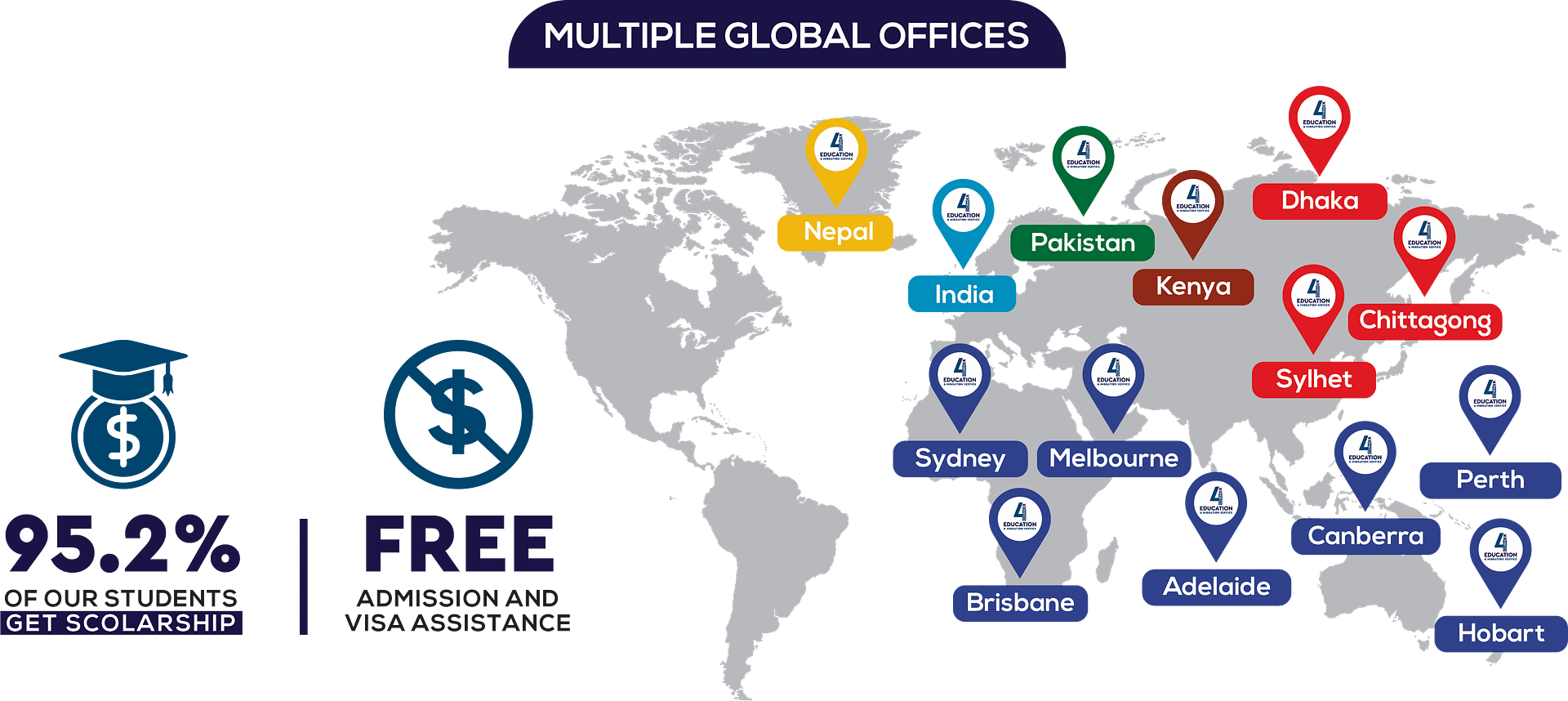

Design & Developed By Pixeltstudio.com